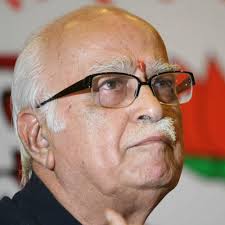New Delhi, Jan 26: Senior BJP leader L K Advani today made it clear that he will be contesting the 2014 Lok Sabha elections, seeking to put a lid on speculation that he may be nominated to the Rajya Sabha.
"I have not said anything (about going to RS) and if somebody offers me this suggestion I will think about it. But it is natural, I think, that if I had to consider it I would have done it earlier," Advani told reporters after unfurling national flag at his residence.
Asked if he would fight the upcoming Lok Sabha elections, the 86-year-old leader, "this is what in my mind".
There has been speculation that BJP was considering nominating Advani to the Rajya Sabha in an apparent bid to consolidate its prime ministerial candidate Narendra Modi's position in the party.
Advani, who represents Gandhinagar from Gujarat in the Lok Sabha, had opposed Modi's elevation and, though, he showered praise on him during the party's recent National Council meeting, many Modi supporters remain wary of the veteran leader's moves.
On President Pranab Mukherjee's Republic Day-eve speech, Advani said it was "significant" that Mukherjee found it imperative to speak against "populist anarchy" in his address to the nation yesterday. The BJP leader, however, declined to comment any further.
"I will only say that on today's occasion I will not comment on anybody even though it is significant, more so as the President found it necessary to comment on this," he said.
Mukherjee's remarks were seen as an attack at the AAP government in Delhi whose Chief Minister Arvind Kejriwal had launched a dharna outside Rail Bhawan to press for action against some police officials. Kejriwal later called off his agitation after his demands were partially met.
The BJP leader also agreed with Mukherjee's appeal against a fractured mandate and hoped that the country would have a government with a complete majority after elections.
Advani termed security as the top concern for the country while stressing that education and health care were also important dimensions of good governance.
BJP leader Arun Jaitley argued that the quality of politics in India needs to improve, saying the stature of people who man politics must be in "consonance" with the huge power that politicians wield.
"The declining quality of politics reflects itself on issues of governance... If India can grow at nine percent on average in bad governance, what will be the growth rate if the quality of politics and governance were to improve?," he wondered.






Comments
Add new comment